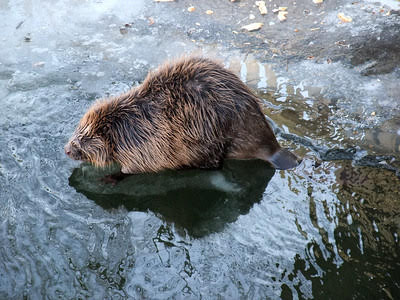
Yesterday in Emerging Infectious Diseases, scientists describe a 2021 COVID-19 outbreak at a beaver farm in Mongolia.
Located in the Bayanzurkh district in Ulaanbaatar, the farm raised 32 adult beavers and 16 kits in 2021 for conservation purposes. The animals lived in a large indoor area separated by waist-high walls.
On August 6, one of the seven farm employees tested positive for COVID-19 after experiencing flu-like symptoms. Three days later, the farm reported the death of two beavers aged 6 months and 2 years after they exhibited cough, nasal discharge, rasping sounds in the lungs and chest, sluggishness, and food aversion.
On August 13, investigators collected nasal swabs, saliva, and tissue from the two dead beavers and obtained nasal samples, saliva, and blood from seven other beavers exhibiting cough and nasal discharge with pus. Later that week and on September 12, the researchers collected more samples from the same animals and from two healthy beavers.
Four unique mutations spark concern
Nearly all (46 of 48) specimens from nine beavers with clinical signs, including the two dead animals, tested positive for COVID-19 on polymerase chain reaction (PCR) testing. Serologic testing of 23 samples revealed the presence of SARS-CoV-2 antibodies in 15. One beaver that didn't show signs of infection also had antibodies.
An alarming aspect of SARS-CoV-2 infection in animals is that host animals can maintain the virus and contribute to the emergence in humans of new variants that have accumulated multiple mutations.
Five random SARS-CoV-2–positive samples were shipped to Austria for whole-genome sequencing, which identified the Delta variant. The Delta and Alpha variants were circulating among people in Mongolia at the time, and the closest related sequences in the beaver samples were from human SARS-CoV-2 in Mongolia, although they contained four novel mutations not found in any public databases as of November 2023.
"An alarming aspect of SARS-CoV-2 infection in animals is that host animals can maintain the virus and contribute to the emergence in humans of new variants that have accumulated multiple mutations," the study authors wrote. "Because the emergence of viruses with mutations not targeted by current SARS-CoV-2 vaccines is a credible possibility, more active surveillance of SARS-CoV-2 infection in animals should be encouraged to identify the appearance of mutated viruses."

.jpg)












